Prince Harry arrives to court
The Duke of Sussex is expected to give evidence in against the Mirror Group Newspapers. (Reuters)
Prince Harry admitted that a longtime tabloid rumor speculating that King Charles III was not his biological father was "damaging" to him over the years.
The Duke of Sussex is suing the publisher of the Daily Mirror for allegedly using unlawful techniques "on an industrial scale" to score front-page scoops on his life. On Tuesday, the British royal became the first senior member to testify in more than a century.
The 38-year-old returned to London's High Court on Wednesday for a second day of cross-examination. At one point, Harry was reprimanded by Mirror Group Newspapers attorney Andrew Green after the prince responded to an inquiry concerning his time in Afghanistan with a question.
"Are you suggesting that while I was in the army that everything was available for the press to write about?" Harry asked.
"Can I just repeat this isn't about you asking me questions, it's about me asking you questions," Green shot back.
The case against Mirror Group is the first of the prince’s several lawsuits against the media to go to trial. It is one of three publishers he alleged unlawfully snooped on him for scoops on the royal family.
In a written statement released on Tuesday, the 38-year-old cited the 2002 article "Plot to Rob the DNA of Harry," which speculated that the royal was the child of the late Princess Diana and her riding instructor James Hewitt.
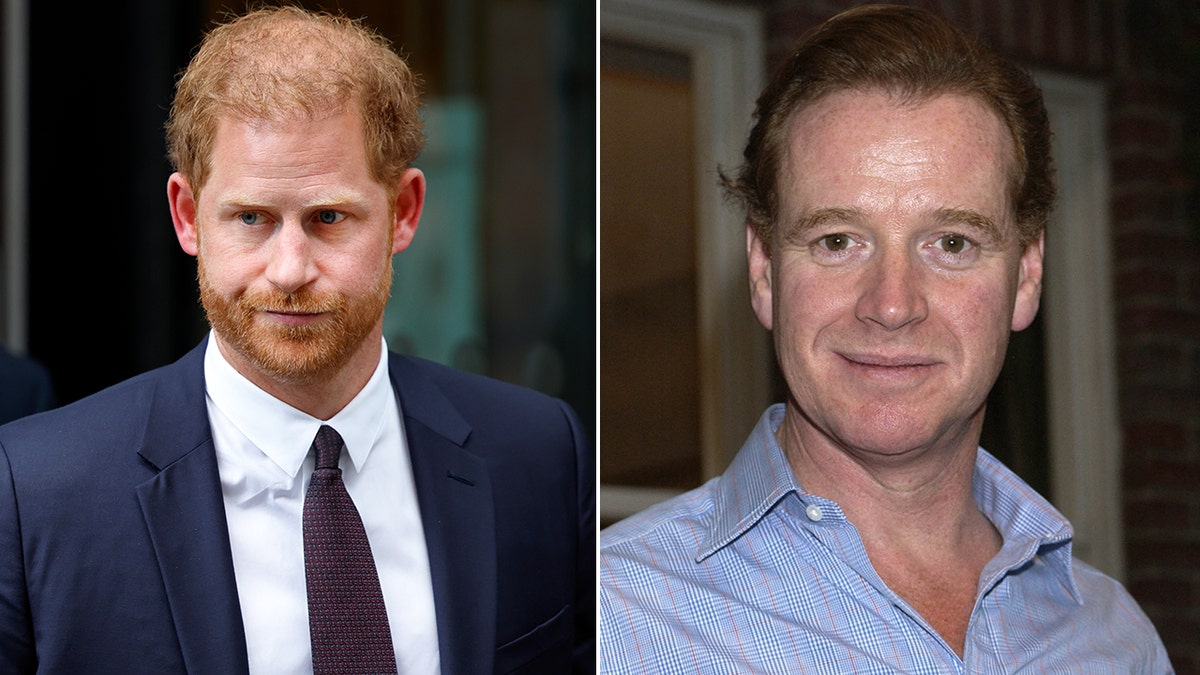
Prince Harry, left, admitted that paternity rumors involving his late mother's riding instructor James Hewitt, right, were painful over the years. (Getty Images)
"Numerous newspapers had reported a rumor that my biological father was James Hewitt, a man my mother had a relationship with after I was born," Harry wrote. "At the time of this article and others similar to it, I wasn't actually aware that my mother hadn't met Major Hewitt until after I was born. This timeline is something I only learnt of in around 2014, although I now understand this was common knowledge amongst the defendant's journalists."
According to Harry, the paternity rumor was perpetuated in several articles.
"At the time, when I was 18 years old and had lost my mother just six years earlier, stories such as this felt very damaging and very real to me," Harry admitted. "They were hurtful, mean and cruel. I was always left questioning the motives behind the stories. Were the newspapers keen to put doubt into the minds of the public, so I might be ousted from the royal family?"

Princess Diana's relationship with James Hewitt made headlines at the time. (Shutterstock)
Harry accused the article’s writer, Dean Rousewell, of having a history of using "unlawful information gathering techniques." According to the prince, Rousewell "reported a plot to steal a sample of my DNA to test my parentage."
"Of particular concern to me in this article are the comments from the 'highly-placed royal source,' which provided details of how the alleged plot would have been carried out and more importantly, that my DNA would be 'sold abroad,'" Harry wrote.
PRINCE HARRY'S UK COURT BATTLE 'GOES AGAINST THE GRAIN OF EVERYTHING ROYAL': EXPERT
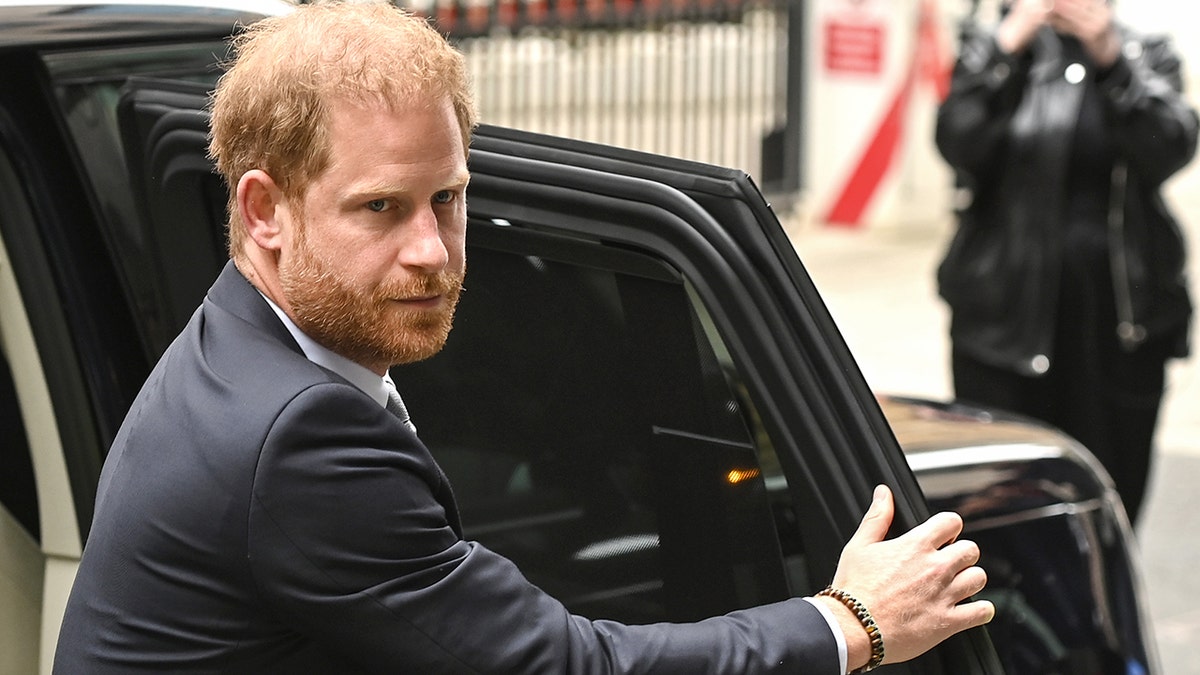
Prince Harry, Duke of Sussex, arrives to give evidence on day two of the Mirror Group Phone hacking trial at the Rolls Building, the High Court on June 7, 2023, in London. (Kate Green/Getty Images)
"I'm not sure from where, or who, these comments were obtained from because they feel like a huge security risk, effectively putting a price on my DNA for anyone who could obtain it," he continued. "I firmly do not believe that these are details anyone from within the palace would have shared, given the measures put in place for the security of all members of the royal family."
This is not the first time that Harry has spoken out about the rumor.
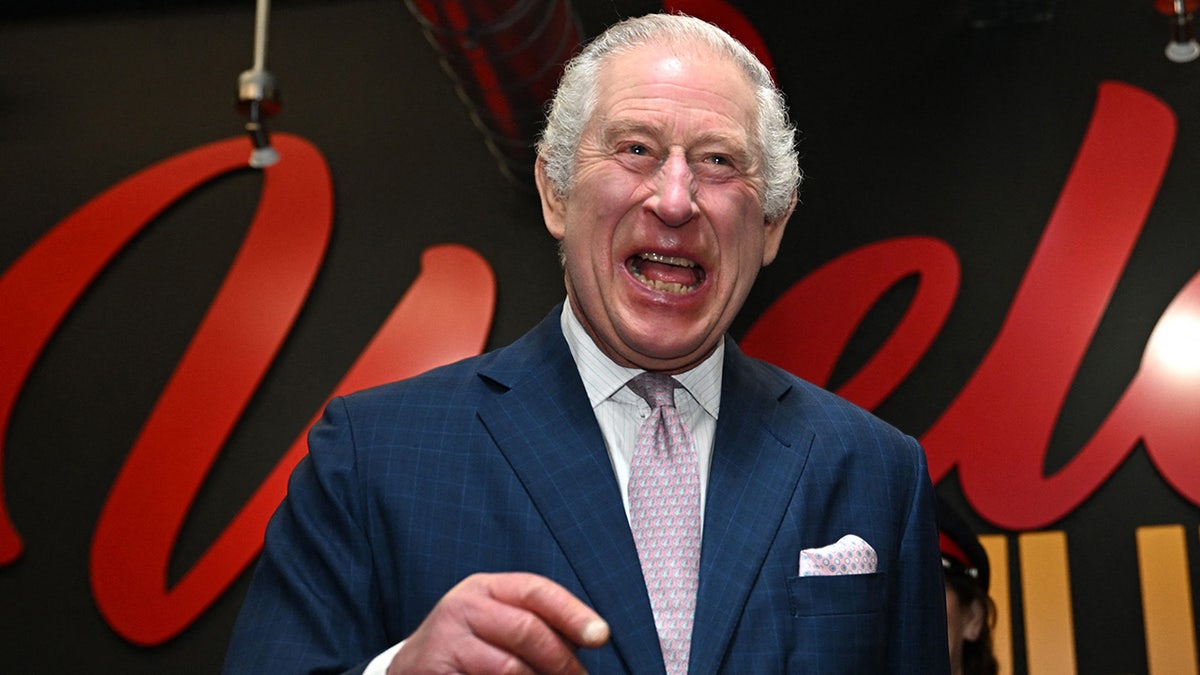
In his memoir, Prince Harry claimed King Charles once joked about the rumor. (PAUL ELLIS/POOL/AFP)
In his memoir "Spare," which was published in January of this year, Harry described how his father, 74, once made "sadistic" jokes about the painful gossip. For Harry, it was no laughing matter.
"Pa liked telling stories, and this was one of the best in his repertoire," Harry wrote. "He’d always end with a burst of philosophizing … 'Who knows if I’m really the Prince of Wales? Who knows if I’m even your real father?'"
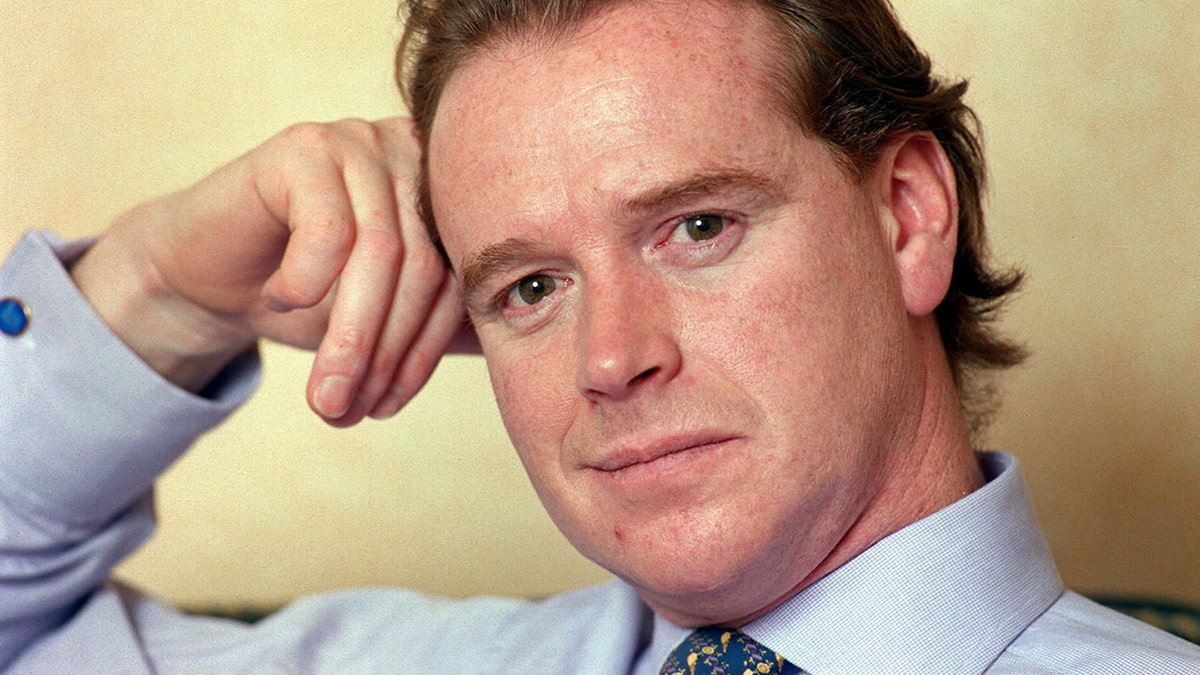
James Hewitt previously claimed he spoke of an alleged five-year affair with Diana, Princess of Wales, because she told him to. (Fiona Hanson - PA Images/PA Images via Getty Images)
"He’d laugh and laugh, though it was a remarkably unfunny joke, given the rumor circulating just then that my actual father was one of Mummy’s former lovers: Major James Hewitt," Harry shared. "One cause of this rumor was Major Hewitt’s flaming ginger hair, but another cause was sadism."
"[The press] couldn’t get enough of this ‘joke,’ for some reason," Harry reflected. "Maybe it made them feel better about their lives that a young prince’s life was laughable."
CLICK HERE TO SIGN UP FOR THE ENTERTAINMENT NEWSLETTER
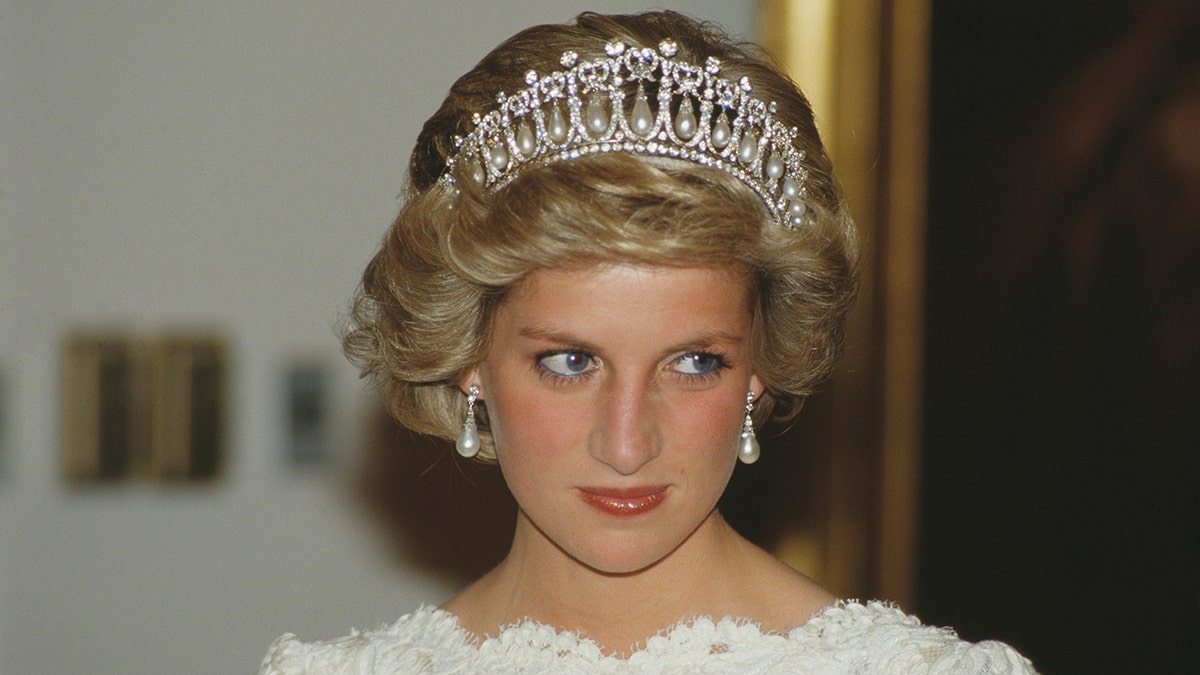
Princess Diana died in 1997. She was 36. (Terry Fincher/Princess Diana Archive/Getty Images)
In 2002, Hewitt himself addressed the gossip.
"I have been aware for a while that the issue of Harry's paternity has been a major talking point," said Hewitt, as quoted by People magazine. "There really is no possibility whatsoever that I am Harry's father. I can understand the interest, but Harry was already walking by the time my relationship with Diana began."

James Hewitt has been a controversial figure in the U.K. after writing about his relationship with the late Princess Diana. (Evan Agostini/Liaison)
The outlet noted that Hewitt and Diana reportedly did not meet until 1986. Harry was born in 1984.
"Admittedly the red hair is similar to mine and people say we look alike," said Hewitt. "Looking at the pictures I would say he is a much more handsome chap than I ever was."
He addressed the speculation once more in 2017 during an appearance on an Australian TV show. When asked if he could be Harry’s father, Hewitt stressed, "No, I’m not."
"It sells paper," said Hewitt about the rumor. "It’s worse for [Harry], probably, poor chap."
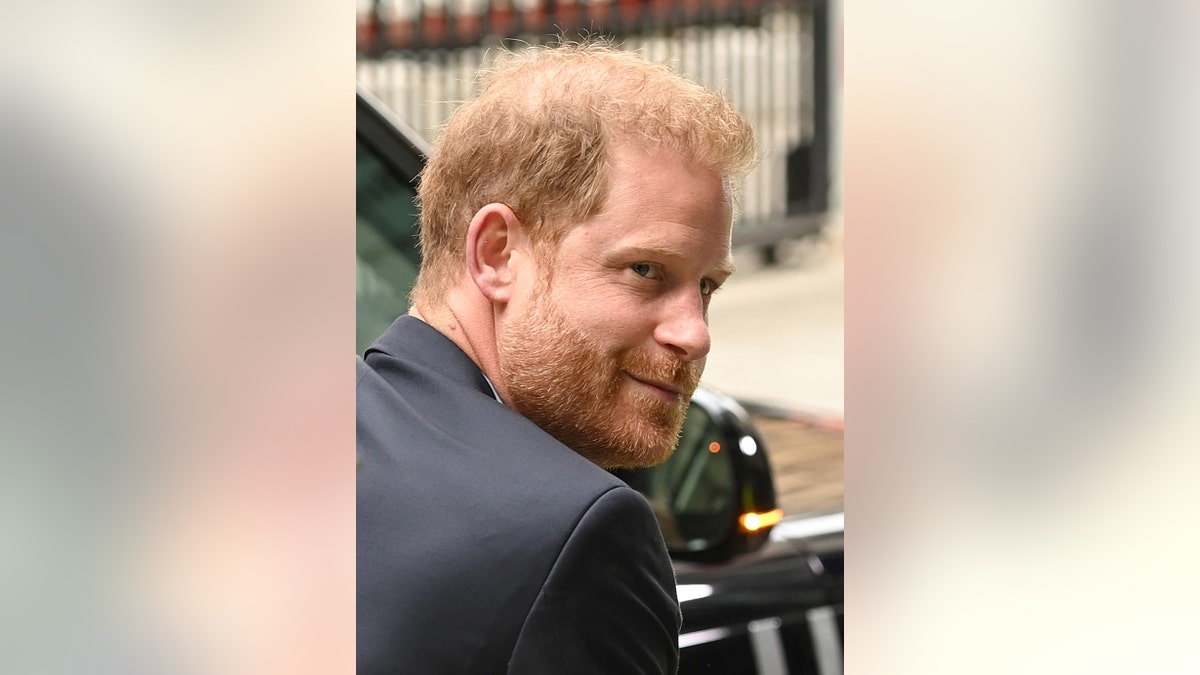
Prince Harry is one of several claimants in a lawsuit against Mirror Group Newspapers related to allegations of unlawful information gathering in previous decades. ( Kate Green/Getty Images)
During his appearance on the witness box Tuesday, Harry told Green that he had "experienced hostility from the press since I was born." The prince accused the tabloids of playing "a destructive role in my growing up."
Green apologized for the one instance Mirror Group has admitted to hiring a private investigator to dig up dirt on Harry, which was not among the claims he has brought. Mirror Group denies or does not admit to his other allegations. Green acknowledged that the duke had "lived a life of tabloid life intrusion," and then in a sympathetic tone set about dismantling his case.
Taken back in time to his 12th birthday and onward through early adulthood, Harry was confronted with articles that he has complained about and asked to identify the source of wrongdoing by Mirror Group's journalists. Harry was forced almost immediately to acknowledge that he was not certain he read the 33 specific articles about him when they were published.
"Is it realistic, when you have been the subject of so much press intrusion... both domestic and international, to attribute specific distress to a particular article from 20 years ago, which you may not have seen at the time?" Green asked.
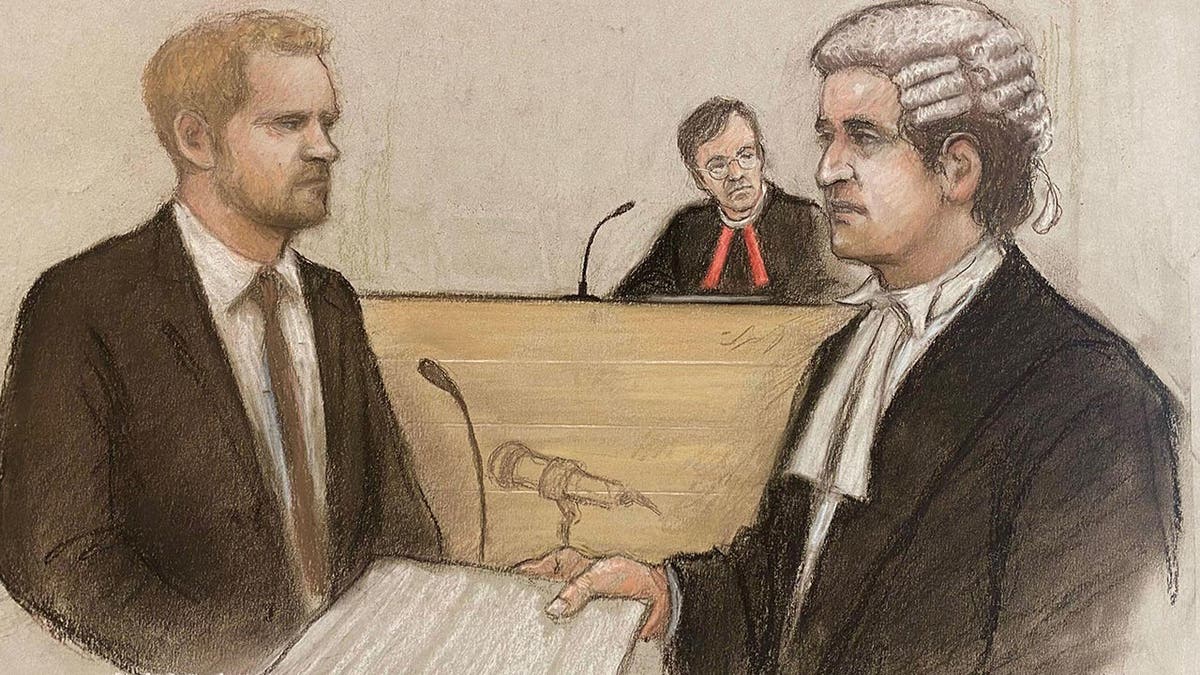
Court artist sketch by Elizabeth Cook of the Duke of Sussex, left, with his counsel David Sherborne, right, giving evidence at the Rolls Buildings in central London, with Mr Justice Fancourt looking on, during the phone hacking trial against Mirror Group Newspapers. (Elizabeth Cook/PA via Alamy)
"It isn’t a specific article; it is all of the articles," Harry replied. "Every single article has caused me distress."
He suggested the articles were the result of phone hacking or some other unlawful information-gathering method that "desperate journalists" relied on for any news nugget about his life. Harry has said the royal family avoided legal entanglements to prevent having to be put in the witness box.
According to Harry, the articles in question caused him to become depressed and paranoid, distrustful of friends, who he feared were feeding information to the media. His circle of friends shrank, relationships fell apart and he felt constantly in the glare of the journalists who were shaping the narrative of his life.
"I genuinely feel that in every relationship that I’ve ever had — be that with friends, girlfriends, with family or with the army, there’s always been a third party involved, namely the tabloid press," Harry said in his witness statement.
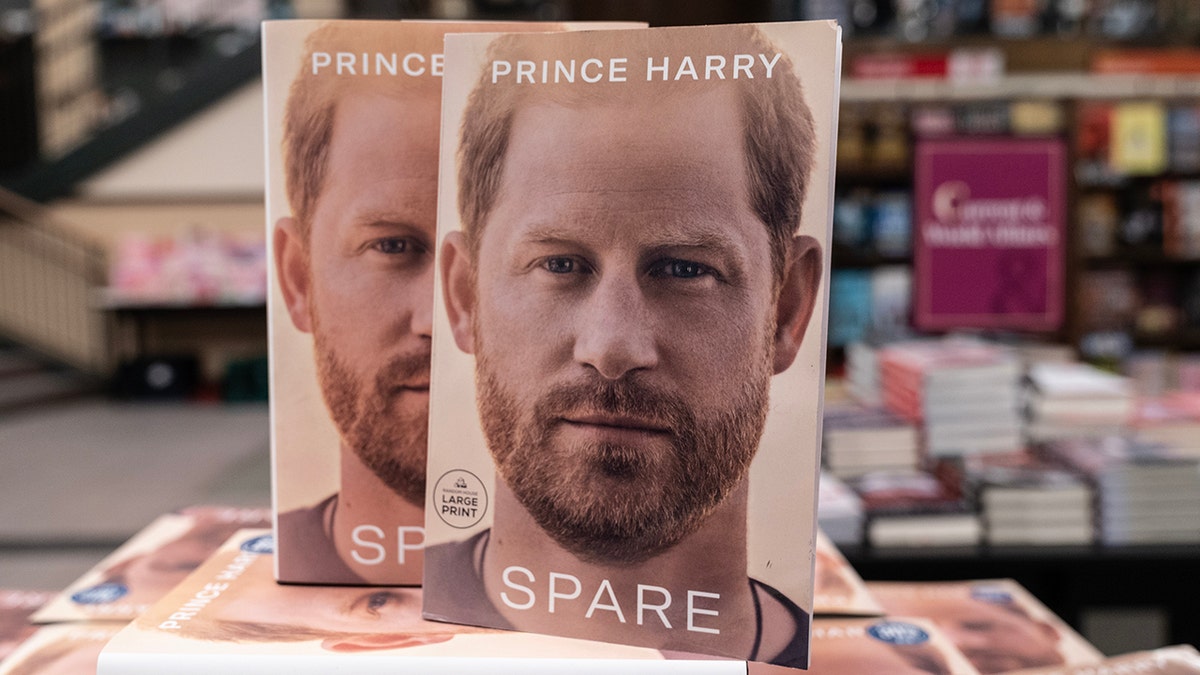
Prince Harry reflected on the paternity rumors involving James Hewitt in his memoir "Spare." (Lev Radin/Pacific Press/LightRocket)
The case dates from 1996 to 2011.
Setting out the prince’s case, his lawyer, David Sherborne, said Monday that from Harry’s childhood, British newspapers used skullduggery to cover all facets of his life — from school injuries to experimenting with marijuana and cocaine, to ups and downs with girlfriends.
"Nothing was sacrosanct or out of bounds," the lawyer said.
Green said Monday that there was "simply no evidence capable of supporting the finding that the Duke of Sussex was hacked, let alone on a habitual basis."
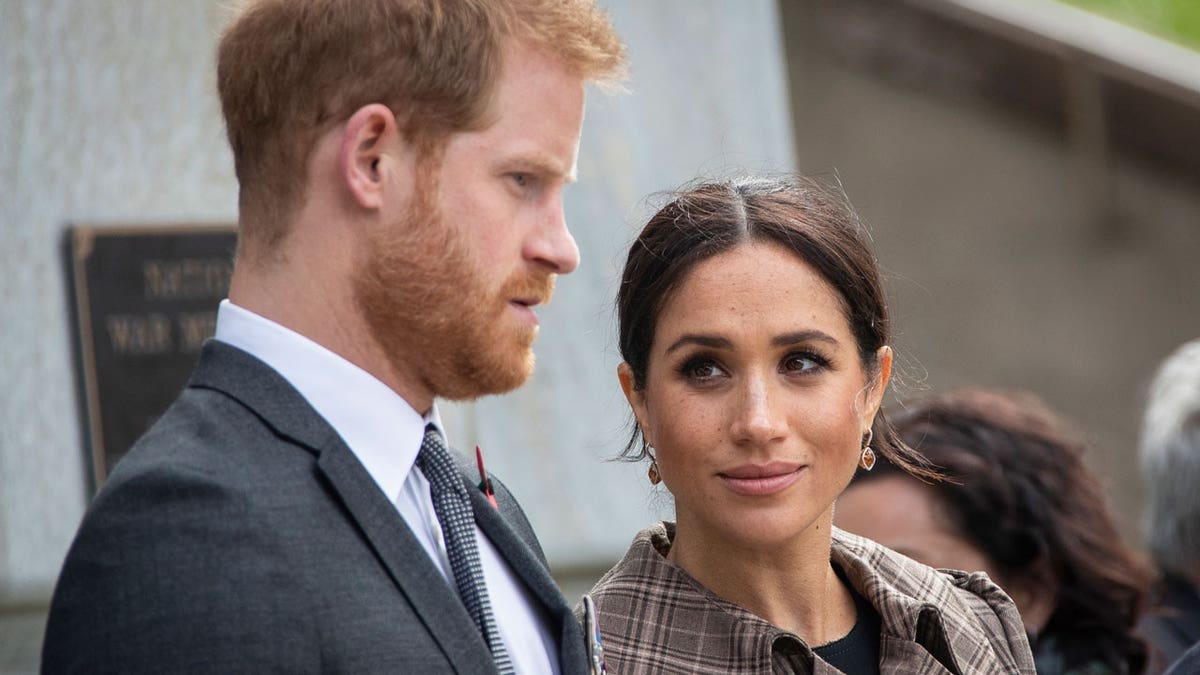
The Duke and Duchess of Sussex reside in California with their two young children. (Getty Images)
Mirror Group has paid more than 100 million pounds ($125 million) to settle hundreds of unlawful information-gathering claims and printed an apology to phone hacking victims in 2015.
Harry has detailed his fury towards the U.K. press in "Spare." He has long blamed the paparazzi for causing the car crash that killed his mother in 1997. He also said intrusion by the U.K. press, including allegedly racist articles, led him and his wife to flee the country.
Meghan Markle, a former American actress, became the Duchess of Sussex when she married the British prince in 2018. In 2020, the couple announced they were stepping back as senior royals. They now reside in California with their two young children.
The Associated Press contributed to this report.







